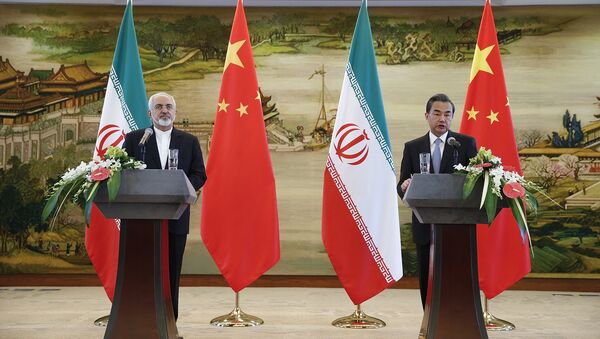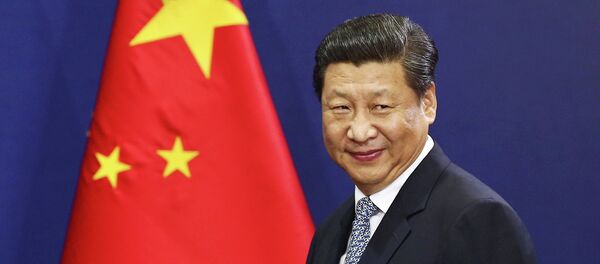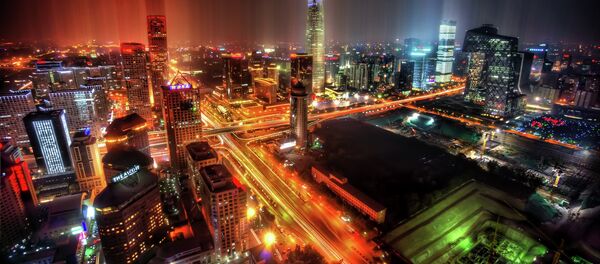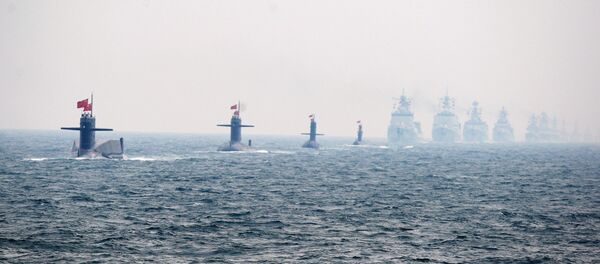"The trip comes just days after the lifting of international sanctions on Iran under the Obama administration-backed nuclear accord that went into effect over the weekend, and analysts say Beijing is eager to get in on the ground floor as the Iranian government scrambles to end its diplomatic isolation and ink deals with foreign investors," The Washington Times writes.
Furthermore, with tensions between Riyadh and Tehran on the rise, "some believe Mr. Xi's goal is to promote a message that both Riyadh and Tehran would be wise to embrace China – not Washington – as the partner of the future."
Patrick Cronin, senior director at the Asia-Pacific Program at the Washington-based Center for New American Strategy, told the newspaper that with the US "increasingly seen as no longer dominating regional politics," Beijing "wants to be perceived as the growing power that can restore order to a muddled Middle East."
"Right now US policy toward the region seems totally upside-down because we're pursuing peace with Iran and alienating our friends – the Saudis, Israel and others as well – and China is swooping in to cash in on that vacuum of power," the analyst explained.
"There are bargain-basement deals to be made here. Iran wants some kind of deal. Saudi Arabia wants a deal. China can swoop in and leverage its political power to drive a bargain and negotiate with either of them," the analyst said.
Even as Chinese economic growth cools, The Washington Times notes, its demand for oil, and for new markets for its goods, will not. Oil and markets, the paper suggests, are "two things that analysts say Mr. Xi will have in the front of his mind during his Middle East visit."
Furthermore, unlike Russia, which recently joined the battle against terrorism with a military mission in Syria, China's activist approach, the paper notes, will center on economics. "As a result, where Moscow is seen to have aligned itself more closely with Iran than Saudi Arabia, Beijing has avoided taking sides."
Still, there are "signs [that] the Chinese aim to grow a military footprint in the region, since it was revealed in November that Beijing is building its first-ever foreign naval outpost in the East African nation of Djibouti. It's unclear how the base, which officials claim is for providing logistics support to Chinese anti-piracy patrols around the Horn of Africa, will ultimately fit into China's overall Middle East policy."
However, speaking to Deutsche Welle, Zhiqun Zhou, the director of Bucknell University's China Institute, warned that there may be limits to the Chinese approach.
"President Xi is likely to emphasize China's policy that disputes need to be resolved peacefully through dialogue. However, anyone hoping that China will serve as an honest broker to bring the disputants together will be disappointed," Zhiqun told the German broadcaster.
Nevertheless, China's efforts to court the region with its Silk Road initiative, and the associated oil and gas pipelines, high speed rail, and other infrastructure projects, are sure to gain Beijing leverage vis-à-vis the United States.
And this is something that Washington must sit up and take note of, Cronin suggests. "We need to be advancing a serious dialogue with our key partners and allies about China's role in the Middle East, and engaging them to think about what is the most constructive role for China and what would be a negative role that undermines security."





